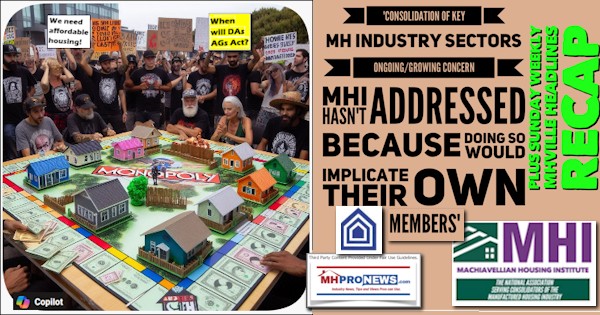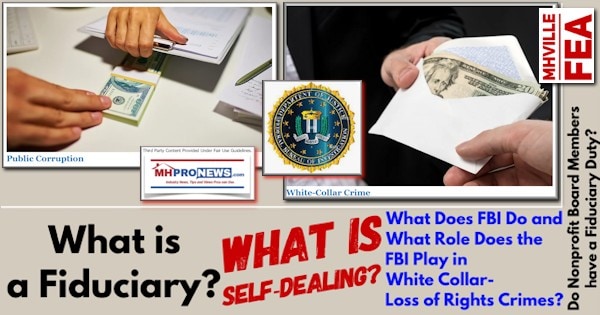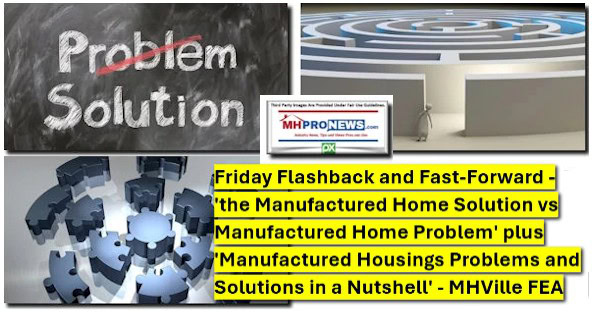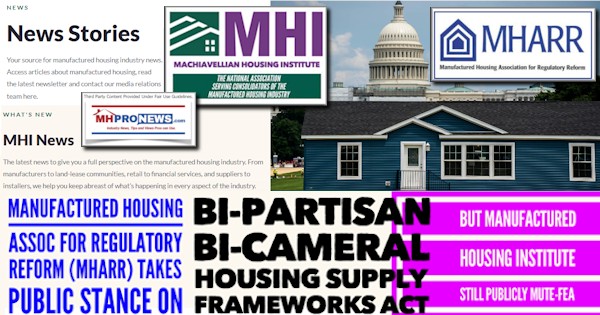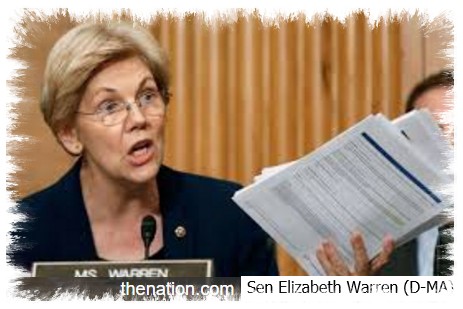
As millions have heard, 5,300 workers were fired and the company agreed to pay $185 million in fines to the Los Angeles City Attorney, the Comptroller of the Currency and the Consumer Financial Protection Bureau (CFBP).
Stumpf’s statement did not help him avoid intense criticism from senators, including Elizabeth Warren (D-MA), who blistered him, calling on the embattled CEO to resign. As Dodd-Frank is a presidential campaign theme, Warren saying Stumpf should be criminally investigated may be viewed as having political overtones to it.
“Have you returned one nickel of the money that you earned while this scandal was going on?” asked Ms. Warren, one of the driving forces that helped create the CFPB.
“Have you have fired any senior management, the people who actually oversaw this fraud?” Ms. Warren continued.
“No,” Mr. Stumpf replied.
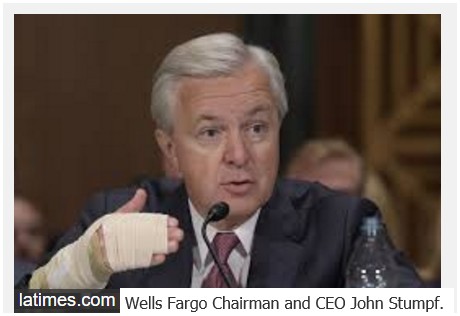
“Your definition of accountability is to push this on your low-level employees. This is gutless leadership,” she said.
While one understands that Wells Fargo team members have done wrong, what is less clear is the role that the CFPB is playing, and why.
The Bigger Picture – Dodd-Frank, CFPB and the MH Connections, revisited
Created in 2011 as a part of the Dodd-Frank law, the agency has operated under a cloak of ongoing controversy, including:
- accusations of lack of inclusion,
- internal discrimination,
- illegal hiring,
- wasteful spending,
- bullying of businesses and
- inefficient regulations.
There is also the matter of a so-called “drafting error” in the Dodd-Frank law that prevented supervisory examinations of most businesses – other than large banks – before the agency had its first director.
Many of the functions of the CFPB already existed in other agencies. With hundreds of community banks put out of business due to the high cost of the new regulatory burdens, opponents of the law argue that it has helped large banks, rather than helped avoid “too big to fail,” which was part of the stated goal for the bill and agency.
As readers of the Daily Business News and MHLivingNews know, each has covered issues around Dodd-Frank and the CFPB in great and ongoing detail.
Against that backdrop, Ronald Rubin’s recent Weekly Standard column poses an important question.
If the CFPB could only examine or audit large banks prior to 2012, why didn’t the CFPB detect the hundreds of thousands of accounts opened at Wells Fargo without customer authorization between 2011 and now? What were examiners doing?
Rubin says, “The Consumer Financial Protection Bureau wasn’t the hero; they were asleep at the wheel.”
This question points to a challenge with many government agencies, which is the ability to discover, address and stop illegal behavior in a timely manner. It gets to the heart of the inefficiency sometimes found in huge federal bureaucracies, as the VA scandals have exemplified.
With Secretary Hillary Clinton, Elizabeth Warren and others in their party proclaiming the wonders of Dodd-Frank, and GOP nominee Donald Trump promoting a repeal and replace theme, the issue looms large for manufactured housing professionals, and the nation.
The Buffett Connection
Warren Buffett’s Berkshire-Hathaway owns a sizable stake in Wells Fargo. Berkshire Hathaway (BH) is the parent company to Clayton Homes, Vanderbilt Mortgage, 21st Mortgage and a host of other suppliers, service providers and producers in the manufactured and modular housing industry, and is one of the stocks tracked in our daily market report.

Wells Fargo makes fee simple loans on manufactured homes, as well as does commercial lending that includes manufactured home land-lease communities.
Beyond the Wells/BH connection, this is a significant issue for the manufactured housing industry on many other levels. Regulations in general – and Dodd-Frank specifically – has created burdens for homeowners, prospective buyers and businesses alike.
Rubin points out that while others came across the Wells Fargo problems first, the CFPB media blitz reduced the other agencies – and the media – that participated in uncovering the issue, to becoming what looked like bystanders.
That may be the CFPB’s and its supporters’ goal. Federal agencies, especially one that Republicans have targeted for replacement, will naturally seek to justify their own existence.
So the Wells Fargo story may mask a deeper issue on the effectiveness, good-or-harm that Dodd-Frank and the CFPB have actually accomplished.
If manufactured housing veteran Alan Amy is correct, the CFPB’s implementation of Dodd-Frank regulations has cost the industry about 30 percent more sales. That represents well over a billion dollars in negative impact. How much is the CFPB’s impact spread across the reset of the U.S. economy? ##
(Image credits are as shown above.)

Submitted by RC Williams to the Daily Business News, MHProNews.






